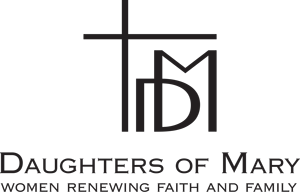Vol.6 No. 7 DoM Gospel Reflection
30th Sunday Ordinary Time
October 23, 2016—Luke 18:9-14
Presented by Mimi Peters–From William Barclay, The Gospel of Luke, The New Daily Study Bible (Louisville, KY; London: Westminster John Knox Press, 2001), 264–267).
The devout observed two or three prayer times daily—in the morning and the evening and sometimes also at noon. Prayer was held to be specifically efficacious if it was offered in the Temple and so at these hours many went up to the Temple courts to pray. Jesus told of two men who went.
(1) There was a Pharisee. He did not really go to pray to God. He prayed with himself. True prayer is always offered to God and to God alone. A certain American cynically described a preacher’s prayer as ‘the most eloquent prayer ever offered to a Boston audience’. The Pharisee was really giving himself a testimonial before God.
The Jewish law prescribed only one absolutely obligatory fast—that on the Day of Atonement. But those who wished to gain special merit fasted also on Mondays and Thursdays. It is noteworthy that these were the market days when Jerusalem was full of country people. Those who fasted whitened their faces and appeared in disheveled clothes, and those days gave their piety the biggest possible audience. The Levites were to receive a tithe of all a man’s produce (Numbers 18:21; Deuteronomy 14:22). But this Pharisee tithed everything, even things which there was no obligation to tithe.
His whole attitude was not untypical of the worst in Pharisaism There is a recorded prayer of a certain Rabbi which runs like this: ‘I thank Thee, O Lord my God, that thou hast put my part with those who sit in the Academy, and not with those who sit at the street corners. For I rise early, and they rise early; I rise early to the words of the law, and they to vain things. I labor, and they labor; I labor and receive a reward, and they labor and receive no reward. I run, and they run; I run to the life of the world to come, and they to the pit of destruction.’ It is on record that Rabbi Simeon ben Jocai once said, ‘If there are only two righteous men in the world, I and my son are these two; if there is only one, I am he!’
The Pharisee did not really go to pray; he went to inform God how good he was.
(2) There was a tax-collector. He stood afar off, and would not even lift his eyes to God. The Authorized and Revised Standard Versions do not even do justice to his humility for he actually prayed, ‘O God, be merciful to me—the sinner,’ as if he was not merely a sinner, but the sinner par excellence. ‘And,’ said Jesus, ‘it was that heartbroken, self-despising prayer which won him acceptance before God.’
This parable unmistakably tells us certain things about prayer.
(1) No one who is proud can pray. The gate of heaven is so low that none can enter it save upon their knees. Christina Rossetti’s words express all that any of us can say:
None other Lamb, none other Name,
None other Hope in heaven or earth or sea,
None other Hiding-place from guilt and shame,
None beside Thee.
(2) No one who despises others can pray. In prayer we do not lift ourselves above others. We remember that we are one of a great army of sinning, suffering, sorrowing humanity, all kneeling before the throne of God’s mercy.
(3) True prayer comes from setting our lives beside the life of God. No doubt all that the Pharisee said was true. He did fast; he did meticulously give tithes; he was not like other people; still less was he like that tax-collector. But the question is not, ‘Am I as good as my neighbor?’ The question is, ‘Am I as good as God?’
Once I made a journey by train to England. As we passed through the Yorkshire moors I saw a little whitewashed cottage and it seemed to me to shine with an almost radiant whiteness. Some days later I made the journey back to Scotland. The snow had fallen and was lying deep all around. We came again to the little white cottage, but this time its whiteness seemed drab and soiled and almost grey in comparison with the pure whiteness of the driven snow. It all depends what we compare ourselves with. And when we set our lives beside the life of Jesus and beside the holiness of God, all that is left to say is, ‘God be merciful to me—the sinner.’
+++++++++++++++++++++++++++++++++++
